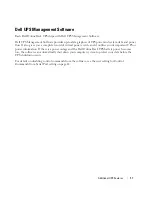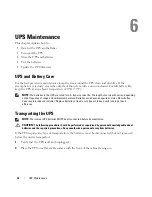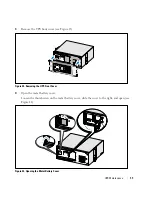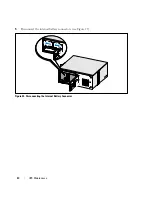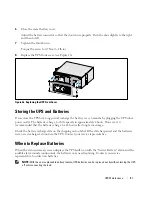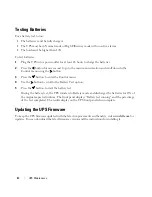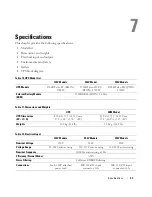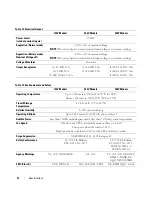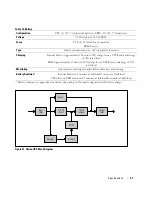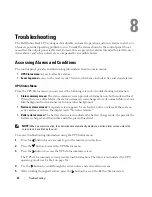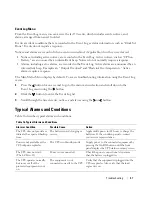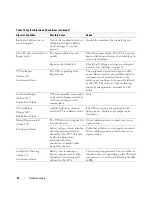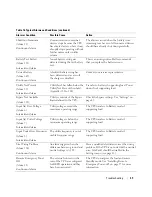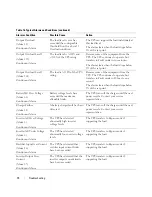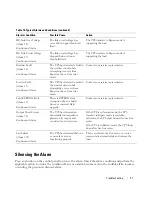
71
Troubleshooting
|
Table 16. Typical Alarms and Conditions (continued)
Alarm or Condition
Action
Possible Cause
DC Link Over Voltage
(Alarm 28)
Continuous Alarm
The link or rail voltage has
exceeded its upper threshold
limit.
The UPS transfers to Bypass mode if
supporting the load.
DC Link Under Voltage
(Alarm 29)
Continuous Alarm
The link or rail voltage has
dropped below its lower
threshold limit.
The UPS transfers to Bypass mode if
supporting the load.
Rectifier Fault
(Alarm 30)
Continuous Alarm
The UPS has detected a fault in
the rectifier circuit while
attempting recovery from
Bypass mode or Converter
mode.
Contact your service representative.
Inverter Fault
(Alarm 31)
Continuous Alarm
The UPS has detected a fault in
the inverter circuit while
attempting a recovery from
Bypass mode or Converter
mode.
Contact your service representative.
Fatal EEPROM Fault
(Alarm 53)
Continuous Alarm
There is EEPROM data
corruption due to a failed
device or incorrect flash
upgrade.
Contact your service representative.
Output Short Circuit
(Alarm 58)
Continuous Alarm
The UPS has detected an
abnormally low impedance
placed on its output and
considers it a short circuit.
If the UPS is in Normal mode, the UPS
transfers to Bypass mode if available,
otherwise, the UPS shuts down after five line
cycles.
If the UPS is in Battery mode, the UPS shuts
down after five line cycles.
Fan Failure
(Alarm 193)
Continuous Alarm
The UPS has detected that one
or more fans are not
functioning properly.
This is an alarm only. Contact your service
representative immediately and remove the
load.
Silencing the Alarm
Press any button on the control panel to silence the alarm. Check the alarm condition and perform the
applicable action to resolve the condition. If any new alarm becomes active, the audible alarm resumes,
overriding the previously silenced alarm.

